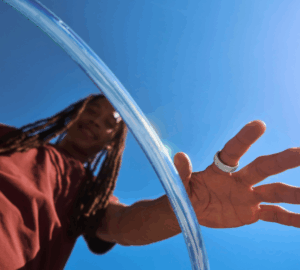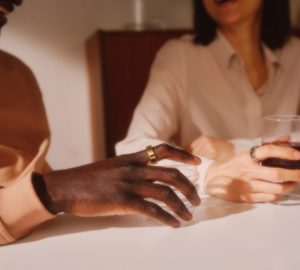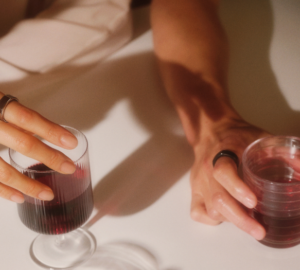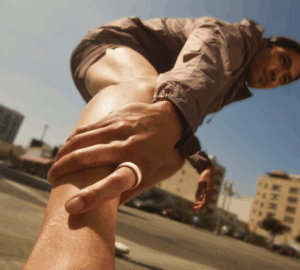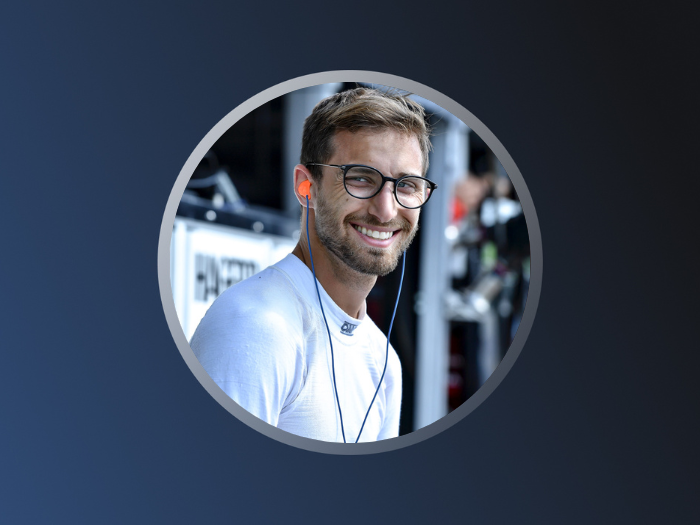Who: Alec U., 27, professional endurance race car driver, Austin, TX
Helpful Oura insight: Competing in races that can last up to 24 hours, Alec often can only take short naps, rather than get a full night’s sleep. Looking at his sleep contributors on the Oura App, Alec gains insight into how his body is recovered. If he notices a short sleep latency, it’s a signal his body is under stress; if he has a restless night, he might not have taken time to wind down before sleep.
As a professional race car driver, Alec’s schedule is often unpredictable and inconsistent. Races can last anywhere between two hours to 24 hours, meaning he’ll often have to drive in the middle of the night.
Race car driving tests your mental and physical endurance. To stay at a competitive level, Alec developed a strict training routine — which includes fine-tuning his sleep with Oura.
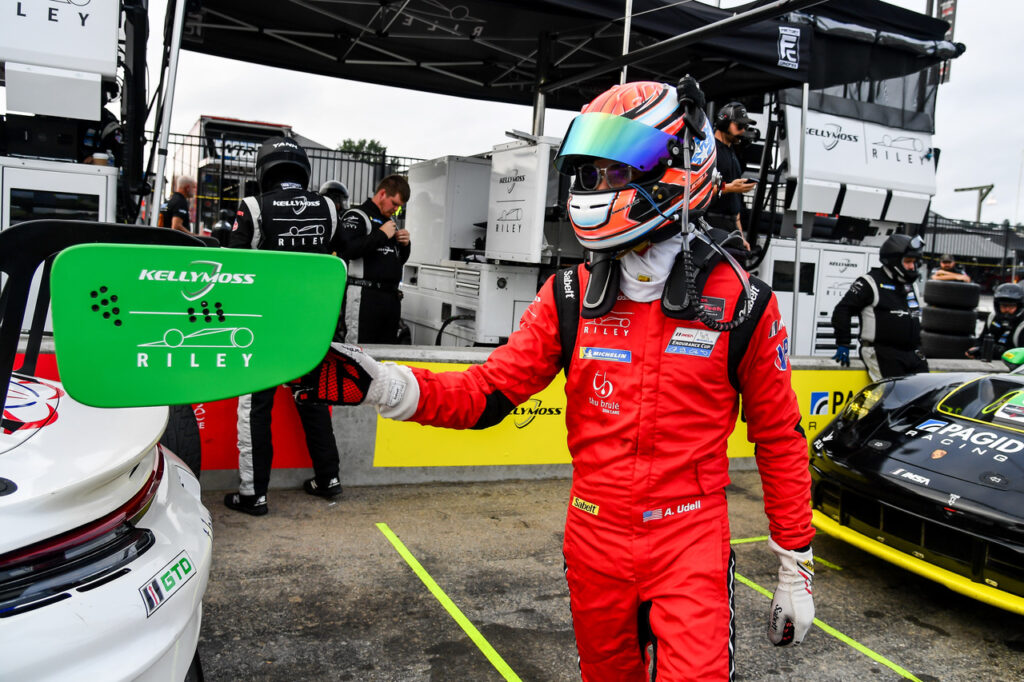
What led you to Oura?
I studied mechanical engineering at college, so I love data and analytics. When I was introduced to Oura by a friend, I thought it would help me to optimize my sleep, recovery, and performance.
How do you optimize sleep and recovery despite your hectic schedule?
My race season runs from January to October, and I race roughly two to four times a month in different locations around the world. I’ve racked up 100,000 airline miles this year, despite driving to as many races as I can in my RV.
With my RV on the road with me, I can create an ideal environment for good sleep, so I can rest better and sneak in naps between races. For races during the night, I may be driving for seven to eight hours at a time before switching. As soon as I switch out, I go to my RV, put my Oura Ring on, and take a nap.
In my RV, I have a comfortable pillow and mattress, I can control the temperature, and I have access to healthy food and water. These components stack up and help me sleep better overall.
I’ve learned that to get seven or eight hours of sleep, I need a minimum of 45 minutes extra time in bed to make sure I hit the actual time asleep that I need for recovery and to feel energized.
READ MORE: How Long Should You Nap?
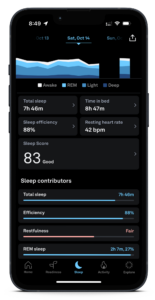
What have you learned about your sleep since using Oura?
Tracking my sleep as well as my naps provides helpful insights into my recovery, so I look at the sleep contributors on the Sleep Tab. When I sleep well, I know I’ll be sharper and more present. If I notice a short sleep latency, I know my body is under stress. If I have a restless night, I know I didn’t wind down enough before sleep.
How do you stay fit — mentally and physically — for racing? How does Oura play a role?
Racing places a great deal of mental and physical strain on your body. When you’re in a race, your brain is processing information rapidly. You need to make quick, precise decisions while sweating profusely – all of which require you to stay calm.
To train, I try to do activities that place “stress” on my body and mind in order to build resilience. Some of these habits include:
- I do a lot of cardio fitness, predominantly cross-country running. I also cycle and strength train. I focus a lot on strengthening my neck and core muscles because keeping your head and core stable and aligned during a race is crucial.
- I balance my physical exercise with recovery. Using Oura, I’ve learned how much training I need to do to boost performance without overtraining. With all the travel, it’s important that I don’t put undue stress on my body.
- I exercise in the hottest part of the day to get comfortable with the extreme temperatures in the car on race day, which range from 80 to 105 degrees Fahrenheit.
- With Oura, I’ve learned how certain habits, like not drinking enough water, eating too late, or eating certain foods, may lead to a lower Sleep Score and Recovery Index. Hydration, in particular, is something that drastically impacts my recovery.
- I regularly practice meditation and breathing exercises from Oura’s Explore content. Doing this has helped me learn how to stay calm, and it’s also a great way to fall asleep quickly in between races!
READ MORE: Reframing Stress: The Difference Between “Bad” and “Good” Stress
What’s Your Oura Story?
Everyone’s story is unique, and we’d love to hear yours. Share your story here.







